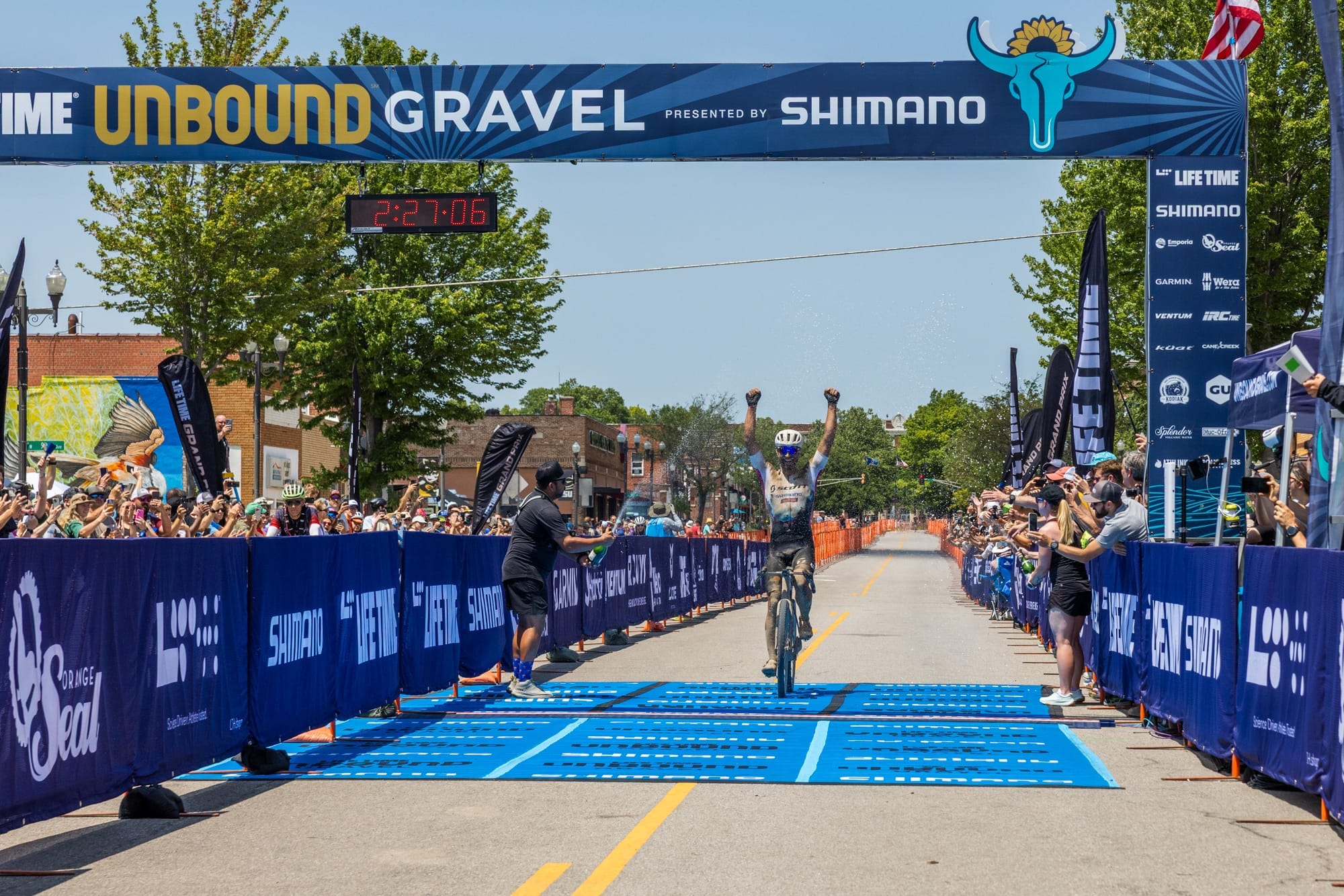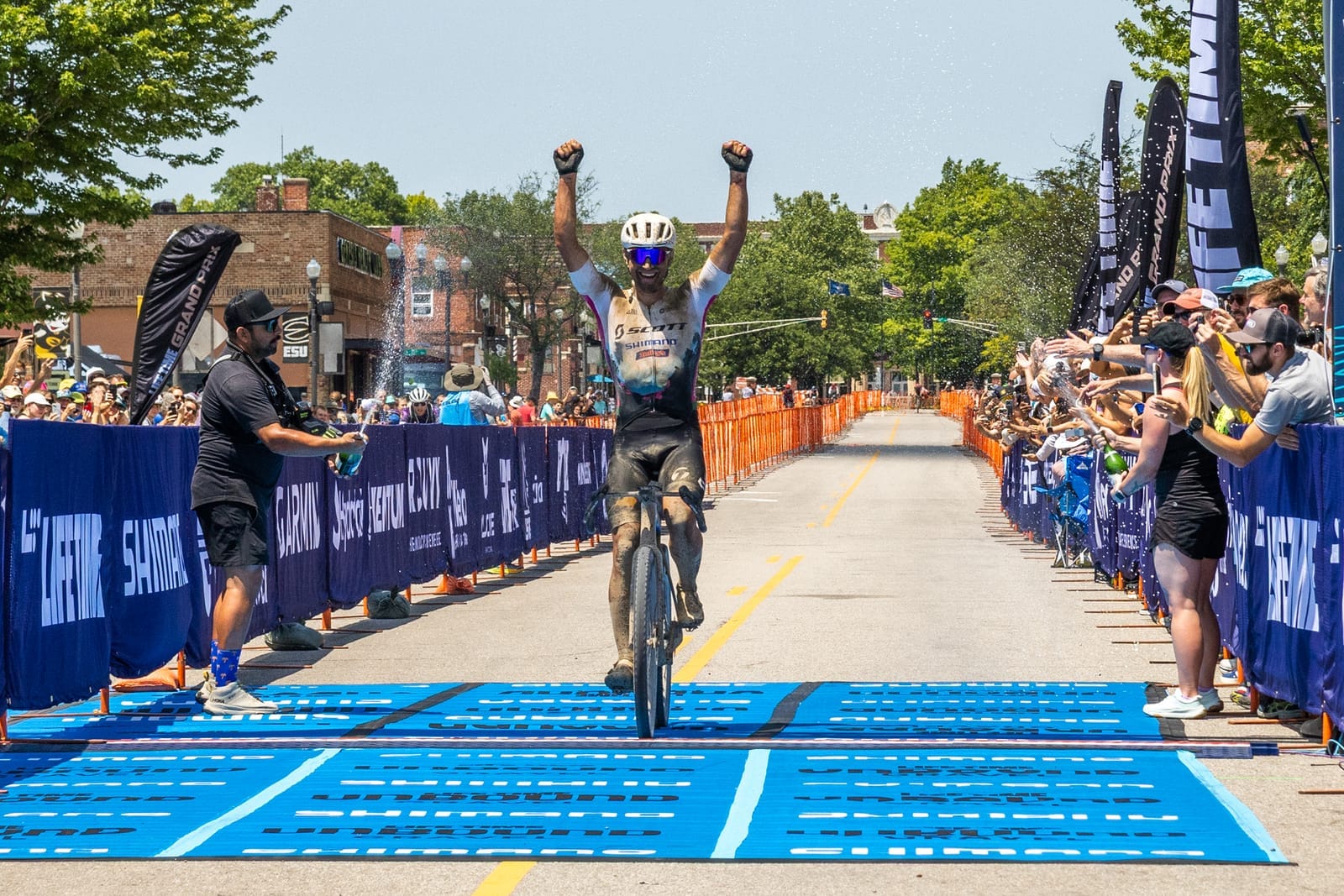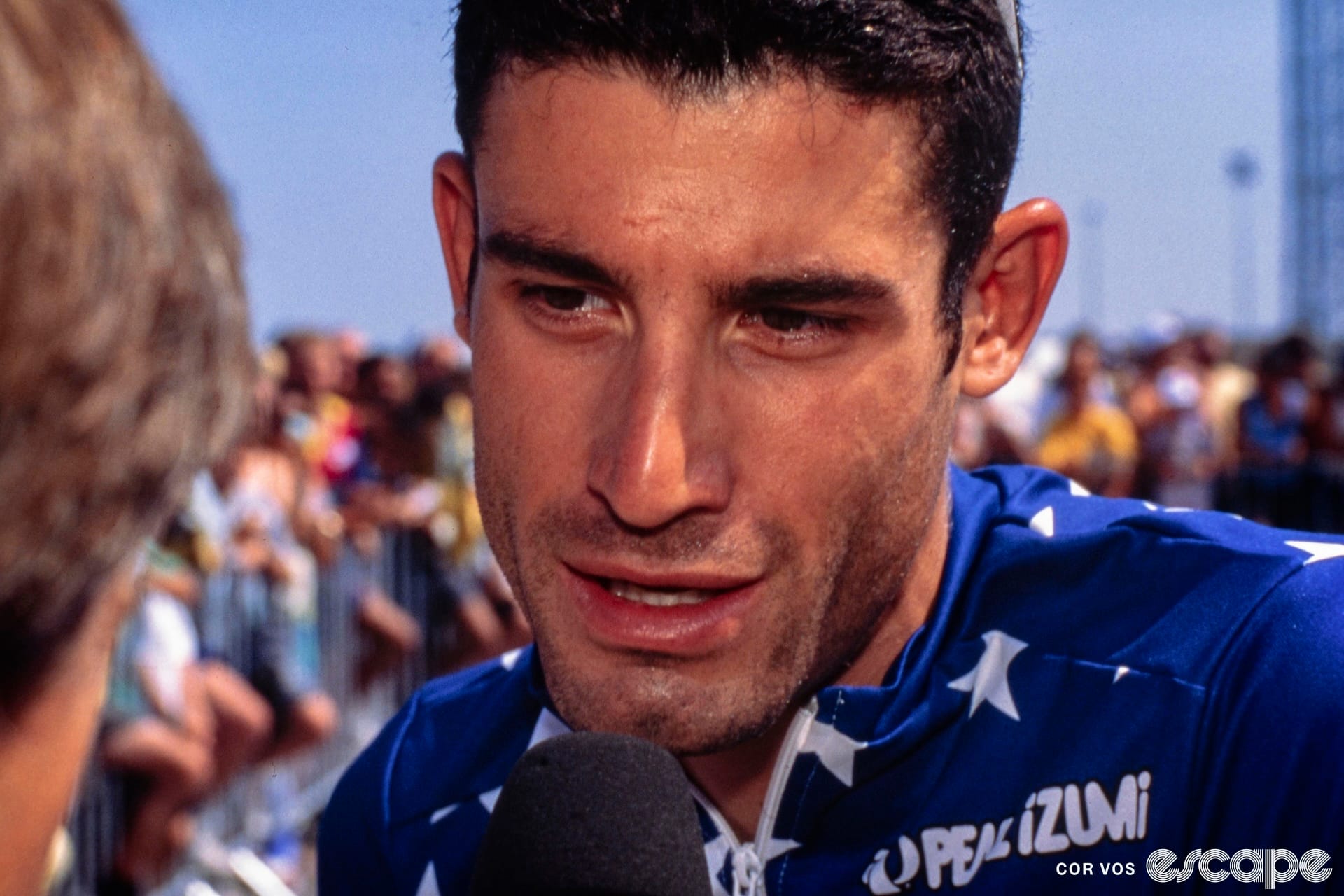As is the case in pretty much all disciplines, gravel's showpiece Unbound event is getting faster almost every year, and in Unbound's case, dramatically so: over the last decade the men's winner's time has dropped from almost 11 hours to under nine hours.
But unlike road and mountain bike races, Unbound's sheer distance and logistics means fueling for it takes a different approach. Over 200 miles, there are two supported aid stops, and the rest is down to you. There is no grabbing an extra bottle from a team car, and no roadside handup from your support team heading into the race's conclusion. To fuel properly takes far more preparation and planning, with a strong foundation of knowledge about what you’ll need eight hours into a race.
This year's men's winner, Cameron Jones, completed the double century in eight hours and 40 minutes, averaging over 37 km/h (23 mph). To hold this speed for so long was a combination of incredible endurance and well-executed fueling, for Jones, this took the shape of his own home-made carb drinks to save money, as he currently does not have a nutrition sponsor.

I have already done a deep dive into the power it took to win Unbound, in what became a 150-mile two-up breakaway. For those who missed it, the headline figure was that Jones averaged 295 watts for the entirety of the race. At this output, one question kept coming up: how do you fuel for a ride of this length and this intensity?
Carry enough for an extra hour – and then eat it all anyway
Jones entered Unbound 200 with a fueling strategy to match the distance. His strategy was simple but effective: take more than you think you’ll need, and don’t be afraid to use it.
“I was kind of joking beforehand with some mates,” he said, “the strategy is you pack for an hour extra between each aid station, and then eat it all anyway.” That approach helped him avoid the energy crashes that had hit him in training races, even when he’d been taking on 150 grams of carbs per hour.
Did we do a good job with this story?





